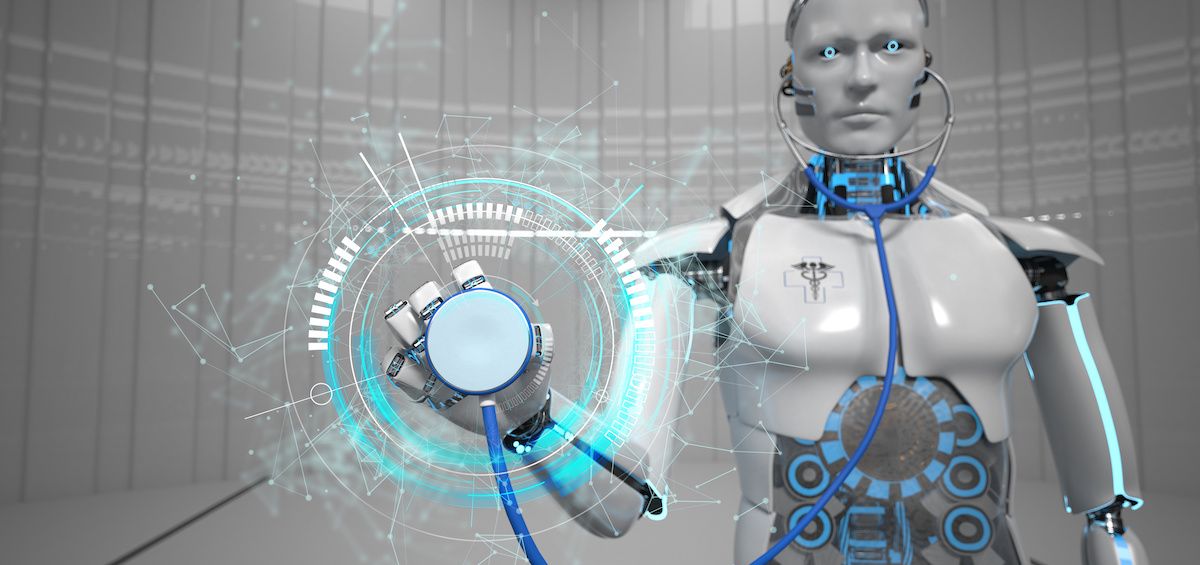
Fix me, robot: How artificial intelligence is revolutionizing healthcare
Because the world’s digital data volume doubles every two years — it’s slated to reach 44 trillion gigabytes by 2020 — that data is nearly impossible to manage using traditional rules and processes. That’s where artificial intelligence (AI) is stepping up, and one of the segments to embrace it most fully is healthcare.
An industry redesign
Healthtech businesses across the world are competing like mad to take advantage of the potential in AI tools. Researcher IDC recently predicted 30 percent of providers will be using cognitive analytics with patient data by next year. Researcher CB Insights recently identified 22 companies developing new programs for imaging and diagnostics slated to utilize machine learning, while others point to big players as IBM’s Watson, Dell, Hewlett Packard, Apple, Luminoso, AlchemyAPI, Digital Reasoning, Highspot, Lumiata, Sentient Technologies, Enterra, IPsoft and Next IT.
“Various thought leaders believe we are experiencing the fourth industrial revolution,” advises Dr. Bertalan Mesko on Medicalfuturist.com. “(It’s) characterized by a range of new technologies fusing the physical, digital and biological worlds, impacting all disciplines, economies and industries and even challenging ideas about what it means to be human.”
Mesko identifies some of the top healthcare benefits of AI, and real-world examples of how they're working, as the following:
- Design of treatment plans: Tools such as IBM Watson for Oncology analyze data from multiple sources to identify optimal courses of action, while a new Babylon app interprets patients’ verbal descriptions of their symptoms, checking them against medical knowledge and the patient’s history and circumstances before recommending treatment.
- Medication management: A virtual nurse developed by Sensely helps patients monitor their meds between doctor visits, while an AiCure app supported by The National Institutes of Health uses a smartphone webcam and AI to autonomously confirm adherence to prescriptions.
- Data management: Comprehensive collection, storage, normalizing and tracing of data are being handled through tools such as Google DeepMind Health.
- Assistance with repetitive tasks: IBM’s Medical Sieve helps with decisions related to radiology and cardiology by combining data with analysis of radiology images to detect problems faster and more reliably.
- Precision medicine: Companies like Deep Genomics seek data patterns indicating mutations and linkages to disease. And scientist Craig Venter is offering patients genome sequencing, full body scans and detailed check-ups that help spot early-stage cancer and vascular diseases.
- Drug creation: By using supercomputers that analyze molecular structures, Atomwise recently identified two drugs that may significantly reduce Ebola infectivity. Similarly, Berg Health seeks new treatments by using AI to understand why certain people survive diseases.
Looking ahead: The reach of AI
Analysts’ predictions about the future of AI in healthcare include the following:
- Medicine will become much more highly personalized as AI allows providers to process, analyze and optimize vast amounts of useful data for use in solving patients’ problems.
- Treatments will become much more precise, and errors will be drastically reduced, due to greater knowledge databases.
- With an increased focus on preventive and predictive medicine, we’ll make inroads into avoiding injury and disease altogether.
- Virtual assistants will increasingly be optimized to empower patients with their own healthcare.
- Ethical debates will continue regarding issues such as personnel shortages, legal responsibilities, privacy issues and system misuse.
“It’s unlikely robots and computers will totally take the place of doctors and nurses, but AI can’t be ignored in its efforts to revolutionize the healthcare industry,” predicts Brian Thomas on Healthsystemcio.com. “With the advent of AI, our kids’ kids will be the ones shocked that all their parents had to obtain information was a simple computer and search engine.”
Share:
Got a project?
Harness the power of your data with the help of our tailored data-centric expertise.
Contact us